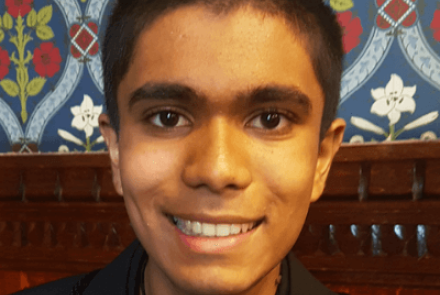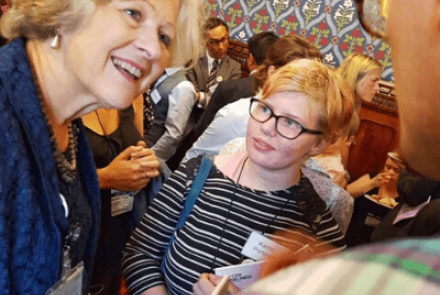Why autism acceptance should be taught in schools
More and more children are being diagnosed with autism, and therefore it's becoming increasingly important that autism acceptance is taught in schools. Unfortunately, it’s become all too common for autistic children to leave school, despite wanting and needing an education, often due to a lack of understanding by both students and teachers.
I firmly believe it should be a requirement to have autism acceptance taught in schools. First and foremost, it is important for children to understand the differences in others. Having been an autistic student at a mainstream school, I witnessed a shocking and alarming amount of ignorance from other students, who clearly had misinformed views on autism, often using the word “autistic” as an insult. I also believe it is a major concern that if children aren’t taught about autism that they will take these views into their post-school life and cause a continued lack of acceptance of autistic people, which in turn will cause the continued isolation and misunderstanding of autistic people in society.
My experience of mainstream school as an autistic young person
Throughout my time in mainstream school, there was no lesson, workshop, assembly, or even speech about autism, nobody mentioned what it really is, and nobody debunked the misconceptions that so many people in my school clearly had. Even just a quick research now shows that there are very few lesson plans available online to be used as resources for schools that want to teach their students about autism. It’s hard for me to personally reflect and recall how I felt at the time, but it appeared that it was almost being treated at the school as a non-issue, or that it almost seemed something that was a foreign concept to the members of staff around me, and looking back on it now, I believe that to be somewhat true.
Not only do I believe it should be a requirement to have autism acceptance taught in schools, but it should also be a legal requirement for members of staff in any place of education to have the appropriate and regular training on autism acceptance in order to assure autistic students are understood by their teachers. This is something that is currently not required for any teachers or school staff, and something that was recently declined as a law in parliament. Speaking from experience (and from speaking to other autistic people) I know that it is very common for teachers and school staff to have a large misunderstanding or even outright ignorance on autism.
During my time at primary school, when I was only nine years old, a poster appeared in the school’s medical room, it had my face on it, and said something along the lines of: “This is Harvey, he is often seen alone during breaks, speaking to himself and walking in circles, and appears to not have any friends." This was for the whole school to see, anyone who entered that room. It felt my autistic traits that the school should have been aware of (as I was diagnosed when I was three) were being treated as something that was so alien that it was necessary for the whole school (including children) to see. To say this made me feel like a complete outcast would be an understatement, I felt humiliated. Like my behaviour was too foreign for even the members of staff who willingly put that poster up to understand. While over a decade later, I’m now aware this was not my fault, it doesn’t take away the humiliation and shame I felt as just a nine-year-old boy, who had no idea what he did to deserve this. I never received an apology for this, leading me to believe for years that what the school did was right. This leads me to ask: what chance do students have at understanding autism if members of staff show such ignorance?
Getting an Education, Health and Care plan
Even in secondary school, it was clear staff members hadn’t received any autism acceptance training. My mum had frequently asked for me to receive an EHC (Educational Health and Care) plan something that was denied by the school for six consecutive years, as I was deemed “too intelligent” to need one, despite my grades, and more importantly, my mental health plummeting due to the lack of support, an EHC plan should be what it claims: education AND health. With senior members of staff making comments such as “autistic children get too much help here already” it was clear that the school was unfit to be a place of education for autistic students and getting the EHC plan I desperately needed seemed near impossible (which I thankfully ended up receiving, despite the school discouraging me and my mum from applying for one until the very end).
I was told I would have an easier time being an autistic person in the adult world than in school, but how can that be the case when it seems like schools across the country don’t seem to be educating both their students and staff about autism? Not only did my time at school show me that adults are just as capable as ignorance towards autistic people, but it makes me wonder how young people moving from school into the adult world without the correct knowledge of autism are supposedly going to help create an easier adult life for autistic people?
Increasing autism acceptance in schools
My plea to schools and places of education across the country would be to please make sure your students are aware of the truth about autism, and make sure they know that some people are autistic, and that’s OK. Make sure they don’t leave their education with the ignorance that still causes many autistic people to suffer.
My plea to the government is to make it a legal requirement for any employee of any place of education to undergo the correct autism acceptance training, autistic students are suffering at school, and need staff to understand them, I know from experience that teachers are just as capable as ignorance, and it’s impossible for children to learn about autism if the staff hasn’t learned either.
About the author
Harvey was diagnosed with autism in 2006 at the age of three, he is extremely passionate about campaigning for better autism acceptance across the country, and one day hopes to take his passion to even bigger places, such as on TV. He believes it's important for the nation (and the world!) to have a true understanding of autism, the issues currently affecting autistic people, and how best to solve them in order to make sure the world is a better place for autistic people.












